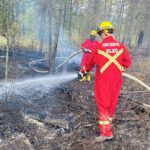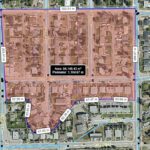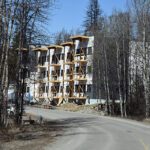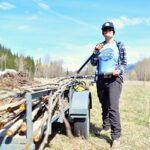Home »
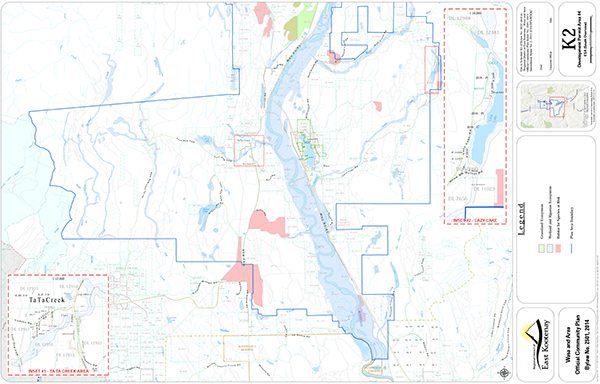
RDEK taps brakes on Wasa area OCP amendment
The Regional District of East Kootenay (RDEK) board of directors Jan. 5 voted to postpone a Wasa and area official community plan (OCP) amendment that would create two ‘Environmentally Sensitive Development’ (ESDP) permit areas.
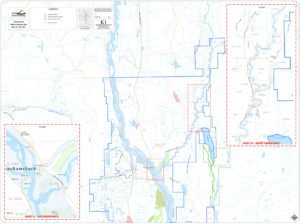
Prior to the vote on Bylaw No. 2633, which would amend Wasa and Area OCP Bylaw No. 2501, 2014, by adding two ‘Environmentally Sensitive Development Permit’ areas – one for the north and one for the south in the OCP area, the board heard from two area residents who summarized the bulk of the concerns heard by board members and RDEK staff.
(The north area includes Skookumchuck, Sheep Creek and Premier Lake areas, while the south includes Tata Creek, Wasa and Lazy Lake areas.)
OCP area resident Cori Barraclough told the board “there is no desire by the residents of Ta Ta Creek, Skookumchuck and Sheep Creek to enact an ESDP area- the initial consultation was misleading and flawed and on-going public communications have been very poor. There is no information coming our way.”
Barraclough, a freshwater ecologist, said she is not opposed to the theory behind the RDEK’s intent with Bylaw No. 2633, but has several concerns about bylaw specifics, such as mapping which “remains in error despite two years of time passing since the maps were first drafted.
“The planner agreed to remove wildlife corridors from the bylaw, but the text remains throughout the bylaw. The bylaw must make explicit that biologists’ (QEP’s) reports pertain only to the development footprint under consideration. The language remains vague and open-ended,” she noted, asking the board, “take more time to fix outstanding issues.”
Sheep Creek area resident Katey Kirkconnell told the board the needs of the Wasa area “are important” but should not be met at the cost of those living around it.
Kirkconnell also complained about poor communication with area residents and of “dismissive language” that was “disappointing and disrespectful.”

RDEK planner Michelle Bates outlined the bylaw process in a report to the board.
“The initial open house for this planning process was held in June of 2015. Following that meeting from early 2016 to January 2017, regional district staff and four plan area residents worked together to review and revise the proposed Environmentally Sensitive Area (ESA) Development Permit (DP) guidelines.
“The resulting bylaws were introduced at the Electoral Area E Town Hall meeting in June. A newsletter was mailed to all residents in the plan area and an open house was held in July 2017. Approximately 68 people attended the open house.
“The primary concerns heard at this meeting and during the nine-week comment period were that property owners do not need any more legislation as the province already has environmental regulations and that the mapping is inaccurate and should be “ground truthed.”
“Twenty-four letters of opposition and nine letters of support were received. In addition to the letters and emails received, the regional district also received a petition. The petition asks that the regulations be withdrawn or that in any event the regulations not apply to sparsely populated areas such as Ta Ta Creek, Skookumchuck and Premier Lake.
“The 94 signatories to the petition represent 61 properties. Five are from outside the plan area and one signature provided insufficient information to link to a specific property. Twenty-three of the signatories representing 21 properties do not have an ESA on their properties. Eighteen of the signatories have property that contains a riparian and/or grasslands ESA and 19 signatories have property that contains a riparian ESA area limited to the floodplain offset area.
Bates noted: “There may have been misrepresentation of the proposed bylaw when the petitioner was requesting signatures as his letter sent to the RDEK contained statements such as, “these ESA and riparian laws will reduce the value of our properties by 60%” and “we are told that if we can’t sell our properties, we can give them to the RDEK or another government agency.
“While it is understood that some people just do not want additional regulations and it is difficult to overcome that sentiment, regional district staff have attempted to address other concerns raised by amending definitions, removing the ESA DP requirement in wildlife corridors and clarifying guidelines regarding the 25% development footprint exemption,” Bates noted in an analysis section of the report.
“There have been numerous consultation efforts and addressing the misinformation has been a priority but unfortunately, it is not always successful. Residents are still not satisfied with the ESA mapping, continue to believe that ESA DPs have an impact on their ability to farm and that ESAs prohibit development. At this time, additional public consultation will not likely result in any benefit or change residents’ views.
“Community feedback is one component that informs the development of OCP policies and guidelines. It is important to note that agency and stakeholder input, planning theory and guiding documents such as the Regional Sustainability Strategy are also significant in developing guidelines within an OCP.”
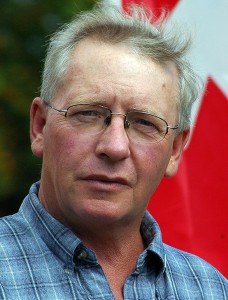
Electoral Area A Director Mike Sosnowski made a motion to postpone the first two readings of the bylaw to allow regional government staff more time to hold another public consultation session.
The motion was seconded by Electoral Area E Director Jane Walter, who pointed out that during the last public meeting the RDEK planning staff informed those in attendance that if they had more questions and concerns they could contact them. “Three did – no one else. There has been opportunity already” to comment, she said.
Village of Radium Hot Springs Mayor and board director Clara Reinhardt argued against postponement because further communication with the public would occur during the bylaw public hearing.
City of Kimberley Mayor and board director Don McCormick also argued against postponement. “We’ve heard half a dozen specific things,” he said, noting regional staff should work on those things.
District of Invermere Mayor and board director Gerry Taft suggested a postponement might help with communications “but will the people involved be satisfied?”
Arguing for postponement, Electoral Area B Director Stan Doehle said, “this board has been accused of not listening or publicizing information” and trying to correct that accusation “is not a bad idea.”
Sosnowski agreed. “We’ve bee accused of not listening; at least they can’t say you didn’t give an opportunity,” he told the board before the vote.
Reinhardt, McCormick, Village of Canal Flats Mayor Ute Juras and District of Elkford Mayor Dean McKerracher voted against postponement.
By Ian Cobb/e-KNOW

